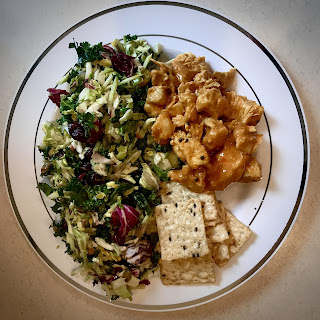Maintaining Weight
How Can We Maintain Our weight?
The amount of calories we burn in a day heavily impacts our weight. If we only burn 1,500 calories but eat 2,500 calories in a given day, that is an excess of 1,000 calories per day. 3,500 calories is 1 lb (2.2 lbs is 1 Kg). So over the next 3-4 days you would gain 1 lb. Over 1 year (365 days/ 4 days per lb) you would gain around 91 lbs.
So what is the best option? Moving more, trying to get at least 30 accumulative minutes of moderate to intense activity most days of the week, is the greatest predictor for maintaining weight loss. Moderate activity can be a brisk walk, gardening, or taking the stairs. Accumulative means it doesn't have to be all at once, as long as each section lasts 10 min. So if you were to garden for 10 min, then take a brisk walk for 10 min, and then deep clean for another 10, your activity goal for the day will be met. Intense activity is things like a fast run, weight lifting, or swimming laps. Activities that greatly increase your heart rate as it gets stronger. Enjoying the activity helps keep the habit, such as playing sports with friends, biking with a dog, or growing your own food.
Even with moving more, though, intake is still important. Burning 3,000 calories a day doesn't make a difference if you eat 4,000 calories. Type of food also makes a huge difference. 1 cup of carrots (about 90 grams per serving) is about 82 calories, 1 fun size snickers is about 80 calories (about 17 grams per serving). The carbohydrates in the carrots give about 4 calories of energy per 1 gram consumed, while fat is about 9 calories per gram consumed. So not only does the carrots give essential (meaning cannot be made in the body but are needed for functions and structure) nutrients and phytochemicals, the ratio of food to calories means you get to eat more and feel more full.
What does a good diet look like? Choose my plate (or myplate.gov) has USDA recommendations that can be easily referenced. Essentially, a healthy diet includes proteins, grains, vegetables, fruits, dairy (or calcium supplement), and healthy oils. Try to limit red meats to about once a week, using other protein groups the rest of the week including chicken, fish, eggs, or lentils. About half of your grains should be whole grains (whole wheat, bulgur (cracked wheat), barley, rye, brown rice, millet, buckwheat, oatmeal, or popcorn). While the human body isn't great at breaking down cellulose (the fibers that give plants their structure), it is essential in a healthy digestive system. In the large intestine, the fiber pulls water into the digestive system, allowing the waste to move through the rest of the system easily, preventing lower digestive issues caused by constipation. Eating a variety of fruits and vegetables is important to get a large variety of nutrients and phytochemicals. Eating too much of one fruit or vegetable can cause an imbalance and possibly prevent other nutrients from being absorbed properly. Additionally, too much of one vitamin or mineral can be toxic. The FDA has charts for Recommended Daily Allowance (RDA) and Tolerable Upper Intake Levels for vitamins and minerals based on age, gender, and pregnancy or lactating. Dairy's main benefit is calcium, but too much is also unhealthy. About 2-3 cups of dairy a day is the current recommendation. For oil, certain oils are healthy for the body while others have a strong connection to heart disease. Try to eat monosaturated and polysaturated oils (canola oil, sunflower oil, olive oil, etc) or foods high in these oils (olives, nuts, avocados, fish, nuts) and limit saturated and trans fats such as butter, coconut oil, or shortening. Fat helps tell the brain that it is satiated, and is very appealing to the nose and palate, so making sure to eat healthy fats helps keep you feeling fuller longer.
So what does this all mean? Try to burn more than you eat. Eating a healthy and well balanced diet helps with satiety, nutrition, and energy. If you do want to lose weight, a great starting goal is 10% of your body weight. So if you weigh 200 lbs, start by aiming for 20 lbs. Ultimately, health is the goal, not the number on the scale.

https://www.choosemyplate.gov/eathealthy/WhatIsMyPlate
ReplyDeletehttps://health.gov/our-work/food-nutrition/2015-2020-dietary-guidelines/guidelines/appendix-7/
https://health.gov/our-work/food-nutrition/2015-2020-dietary-guidelines/guidelines/appendix-1/
https://www.nal.usda.gov/sites/default/files/fnic_uploads//UL_vitamins_elements.pdf